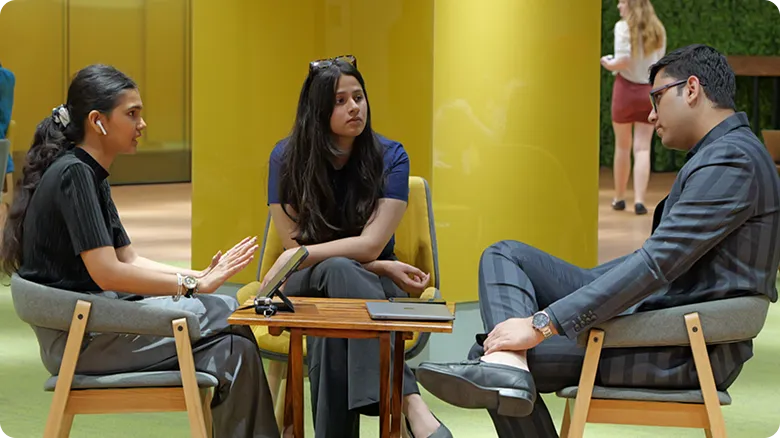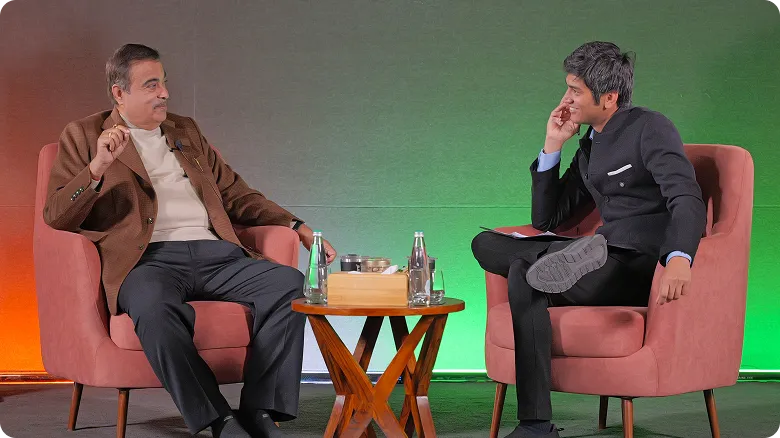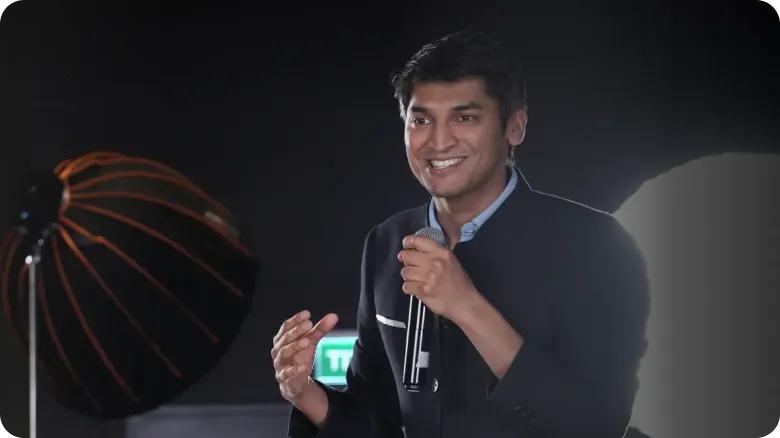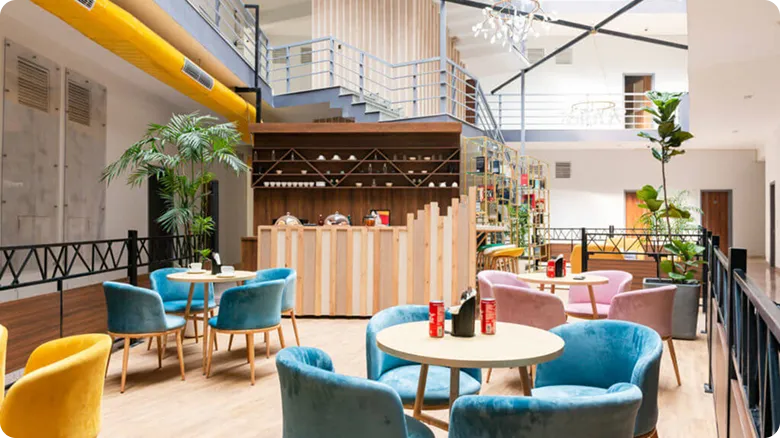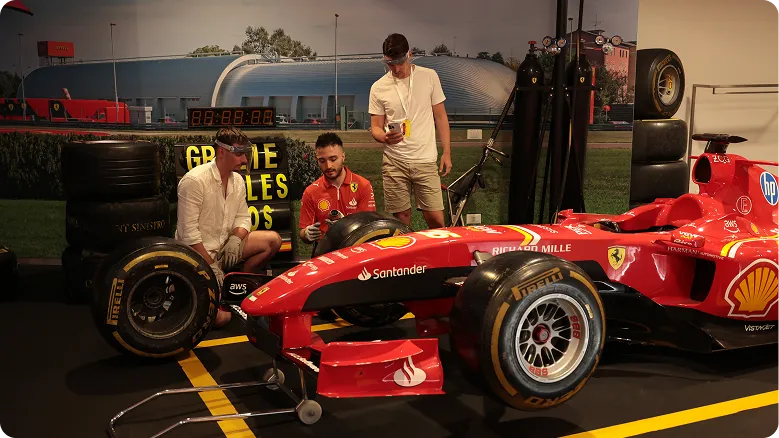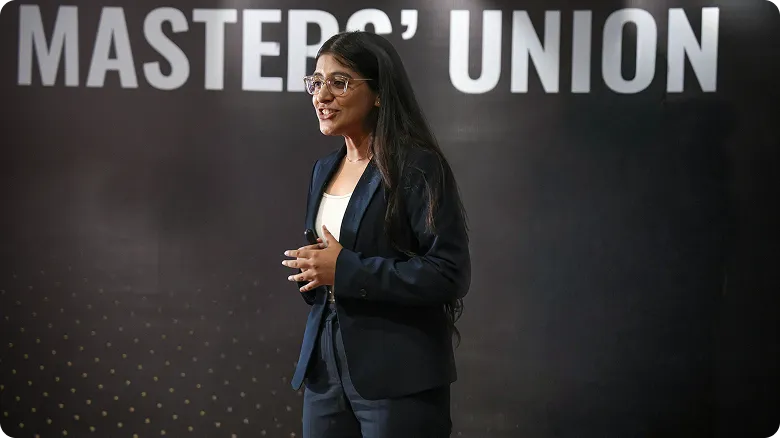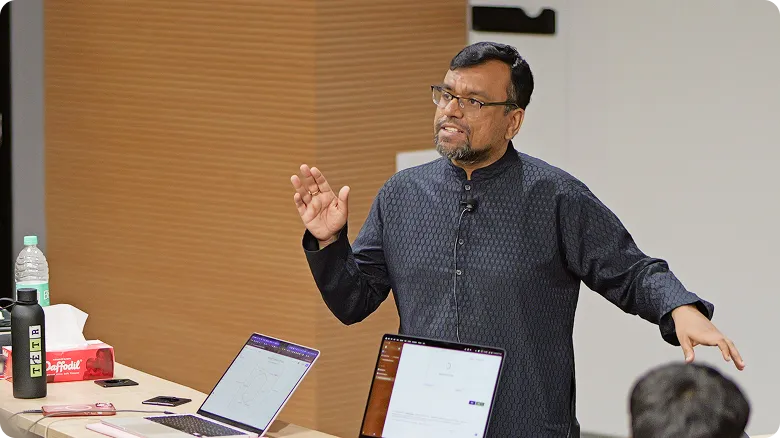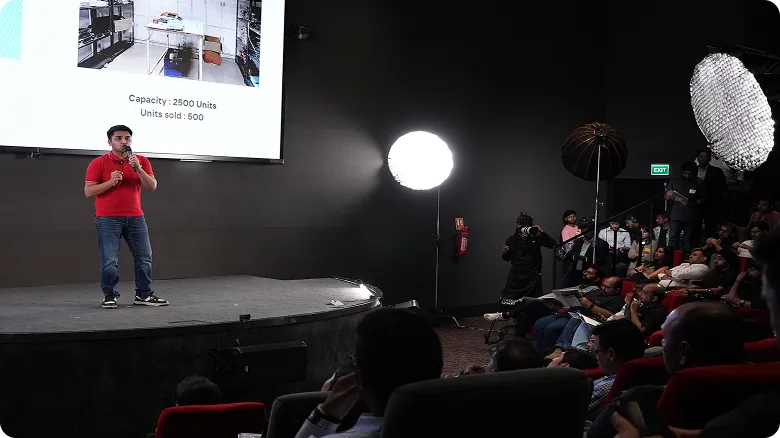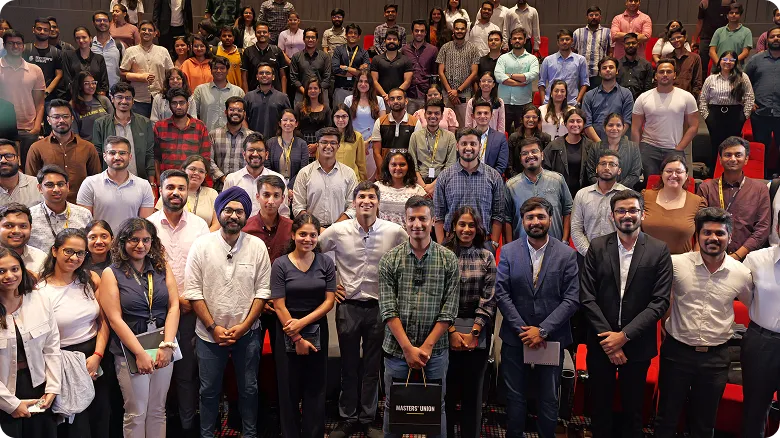Undergraduate
Undergraduate (Global)
Postgraduate
PGP in Technology and Business Management
PGP in Technology & Business Management
(Young Leaders Cohort)
PGP in Human Resources & Organisation Strategy
PGP in Sports Management & Gaming
PGP in Applied AI & Agentic Systems
PGP in UI/UX & Product Design
PGP in Sustainability & Business Management
PGP Bharat
Executive
Family Business
Careers
Innovations
Faculty
MU Ventures
Enterprise Education
Student Life
Jobs
Become a Master
events
For Companies
Blog
Business
Zepto Success Story: Kaivalya Vohra on 10-Minute Delivery & Growth
January 20, 2025
.PNG)
Zepto’s 10-minute grocery delivery has reshaped how India shops, but what does it take to run such a system at scale? At Masters’ Union, students got an inside look from Kaivalya Vohra, Co-Founder of Zepto, as he broke down the startup’s rise.
From dropping out of Stanford to building India’s fastest-growing quick commerce brand with Aadit Palicha, Vohra’s journey is not just a business story. It is a playbook for young founders: ideas are easy, execution is everything.
From Stanford to Startup: Zepto’s Origin Story
Kaivalya Vohra and Aadit Palicha didn’t just dream up Zepto; they lived the problem. As Stanford dropouts returning to India during the pandemic, they noticed how online grocery platforms still couldn’t meet the need for speed. Their answer? Zepto, a quick commerce brand that promised groceries in 10 minutes.
Vohra explained that the real challenge was not building an app, but creating trust in an industry where late deliveries had become the norm. By focusing on precision and consistency, Zepto became India’s fastest quick commerce brand in just three years.
How Zepto Started Strong:
-
Born from Stanford dropouts solving their own problem
-
Promise of speed became the USP: 10-minute grocery delivery
-
Built trust in a market where delays were the default
Inside Zepto’s Business Model
Every business has a backbone. For Zepto, it was about building micro-warehouses (dark stores) in high-demand neighbourhoods and using data to stock only what sells. This cut delays, reduced wastage, and ensured the 10-minute delivery promise could scale.
Vohra shared with Masters’ Union students that Zepto didn’t just replicate global models. It customised dark store operations for India’s density and consumer behaviour, which gave it an edge over traditional e-grocery players.
Zepto’s Operating Blueprint:
-
Micro-warehouses in high-demand localities
-
Data-driven inventory planning to stock essentials
-
Scalable logistics with precision at the last mile
How the 10-Minute Promise Works
A 10-minute delivery might sound impossible, but Zepto makes it practical. Each order is routed through a nearby micro-warehouse, where real-time data ensures products are pre-stocked. Smart route planning and a tight delivery radius cut unnecessary travel time.
Vohra credited this system for making Zepto more than hype. It’s discipline, not luck, that keeps groceries landing at your door before your chai boils.
The Mechanics of Speed:
-
Inventory is predicted and stocked before orders come in
-
Delivery partners operate within a 2 km radius
-
Real-time data ensures minimal delays
Zepto’s Expansion Beyond Groceries
Quick commerce was never just about vegetables. Zepto has steadily expanded into categories like beauty, daily essentials, and even OTC medicines. A bold move came with Zepto Café, which sells coffee and snacks directly through its app.
Already live in 15% of stores, Zepto Café targets an INR 1,000 crore run rate by FY26, with over 100 outlets launching every month. Vohra stressed that growth wasn’t about chasing categories blindly but expanding where consumer demand was strongest.
Zepto’s Growth Beyond Groceries:
-
Added beauty, essentials, and medicines to increase order value
-
Launched Zepto Café to push food and beverages
-
Scaling with 100+ outlets monthly and aiming for an INR 1,000 crore run rate
Why Zepto Hires for Ownership, Not Titles
Scaling fast doesn’t just need technology, it needs people who act like founders. At Masters’ Union, Vohra explained that Zepto doesn’t hire for resumes alone. Curiosity, accountability, and problem-solving define the culture.
He also touched on technical debt, the shortcuts startups take to move fast. At Zepto, speed never meant sloppiness. Every quick fix was followed by discipline to keep systems clean. This balance of agility and rigour is what keeps Zepto ahead in India’s quick commerce race.
Zepto’s People and Culture Strategy:
-
Hiring for ownership and curiosity, not just skills
-
Technical debt is treated as temporary, never ignored
-
Culture of speed without compromising discipline
What Students Can Learn from Zepto’s Rise
Zepto is more than a delivery app; it’s proof that simple ideas, executed with relentless discipline, can scale into billion-dollar businesses.
Vohra’s message to Masters’ Union students was clear: don’t overthink ideas. Execution is where the winners are made. From street-level delivery precision to building culture inside teams, Zepto shows that market leadership is earned by those who deliver faster, listen harder, and never break trust.
Lessons from Zepto’s Journey:
-
Ideas are common; disciplined execution is rare
-
Consistency builds trust more than marketing
-
Expansion works when rooted in real consumer demand
FAQs
-
How did Zepto grow into India’s fastest quick commerce brand?
By building micro-warehouses, using real-time data, and focusing on execution, Zepto made 10-minute grocery delivery a scalable reality. -
What makes Zepto’s 10-minute delivery possible?
A network of dark stores, smart route planning, and tight last-mile logistics allow Zepto to keep its delivery promise. -
Who are the founders of Zepto?
Kaivalya Vohra and Aadit Palicha, Stanford dropouts, co-founded Zepto and scaled it into a unicorn. -
How is Zepto expanding beyond groceries?
By adding essentials, medicines, and launching Zepto Café, the company is raising order values and building new revenue streams. -
What lessons did Kaivalya Vohra share with Masters’ Union students?
He emphasised that execution matters more than ideas, and trust is built by delivering on promises daily.






